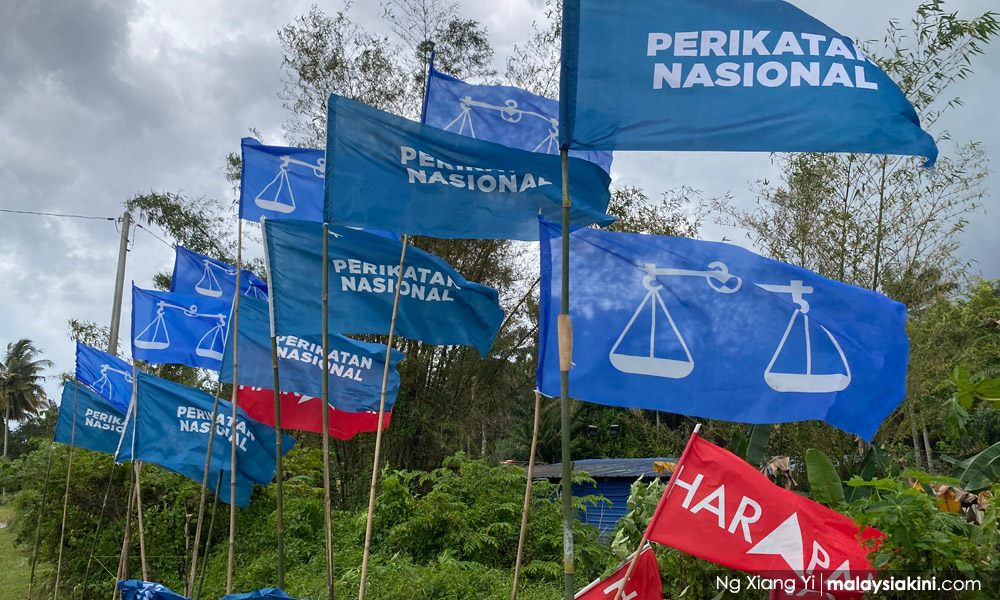ADUN SPEAKS | After the Johor state election, we can notice that many important issues require institutional reforms by all parties.
On the government side
The Johor state election fell on Saturday, which is a public holiday for civil servants, but it was actually a working day for most of the employees in the private sector.
Although many parties requested the caretaker government to follow the example of the Malacca caretaker government and make polling day a public holiday, the caretaker government refused.
Therefore, the Elections Act 1958 (Act 19) should be amended to expressly state that polling day must automatically be declared a public holiday to avoid depressing turnout.
On the Election Commission (EC)
This Johor election is the first time that young voters aged between 18 and 20 are entitled to vote, but the confused EC suddenly discovered after the dissolution of the state assembly that the existing Section 13(1)(b) of the Election Offences Act 1954 (Act 5) is still at the age of 21 for polling agent and counting agent (Paca). The Parliament urgently needs to table an amendment as soon as possible to lower the age limit to 18.
The electoral counting process has long created a lack of confidence in the fairness of elections. The ballots are counted separately in each classroom. In this election, there were still electoral officers who refused to hand over the official ballot counting form (Borang 14) to the candidate counting agent after the counting process was completed. The Election Offences Act should include this as an election offence, in order to address this human bias once and for all. Or, simply publish a breakdown of vote counts for each classroom along with election results.
Due to the epidemic, the number of postal voters has increased, but the ratio is negligible. The main reason is that the procedures are cumbersome and it is only open for a short period of 10 days. Year-round registration should be open and made available for the postal voters. The two separate steps of opening an account and submitting an application should be simplified into a one-time application; many people mistakenly believe that they have submitted an application for postal voters after opening an account.
The election committee should also try out online pre-nomination, so that candidates’ documents can be pre-reviewed and corrected to avoid mistakes or temporary failure to attend due to a confirmed Covid-19 diagnosis.
An election is a key institution in democratic politics. The threshold for participating in elections should be lowered as much as possible, and local government election regulations should be abolished. In this Johor polls, some local governments used the revised regulations, UUK Iklan Pilihanraya, to collect a deposit of RM 1,000 per signboard and RM 600 of advertising fees on their own in addition to the RM3,000 deposit for campaign materials already collected by the EC; if a constituency candidate wants to set up 50 boards, he would have to raise a deposit of RM50,000 and an advertising fee of RM 30,000, which is obviously expensive and unreasonable.

On the political party
In each general election, the political parties usually face the problem of faction distribution and the replacement of candidates. We can refer to the democratisation experience of various countries to formulate a candidate selection mechanism that includes local public opinion and continuously improve the mechanism.
There are winners and losers in the election. The losing candidates do not have assemblyperson allowances and administrative funding. Even the personal and family expenses are a problem for the candidates, how can they even bear the cost of a service centre? Political parties, as organisations, should institutionalise the adoption of losing constituencies and at least bear the operating costs of service centres.
Several new candidates in constituencies pointed out that the poor performance of the originally elected representative affected the support rate of their political parties and lost. But why did the political parties fail to monitor the service performance of each constituency on normal days, and did not carry out damage control in advance? The root cause is due to factional considerations and the old thinking of the power of appointing their favourite candidates.
If an oversight has been carried out and problems are found, prospective candidates should be appointed in advance to familiarise voters, without worrying about whether the originally elected rep would contradict them.
Candidates themselves need to bear all campaign expenses and deposits, and even party flags and uniformly designed publicity materials need to be paid. Political parties should uniformly provide a certain number of party flags and propaganda materials, and bear the security deposit, so as to avoid the consideration of the cost of running for the election of the next term, which will affect the public interest principle while deciding the distribution of allocations of the elected representatives.
On the candidates
The pandemic has caused no or limited public speeches in the polls for two years. Although public speeches are allowed in the Johor election, the crowds are sparse. This proves that the voters had made up their minds, and the year-round service of elected reps and political parties speak louder than the two-week of campaign.
In addition, the victory and defeat of several state seats this time also prove that the popularity of candidates among voters is an important key to winning the election, especially the support of interracial voters. Therefore, the traditional strategy of wide redeployment of candidates is not suitable for the current downturn.
If the above reform plans can be implemented, the Johor election will be even more meaningful. - Mkini
CHEW CHONG SIN is DAP’s Mengkibol state assemblyperson.
The views expressed here are those of the author/contributor and do not necessarily represent the views of MMKtT.



No comments:
Post a Comment
Note: Only a member of this blog may post a comment.